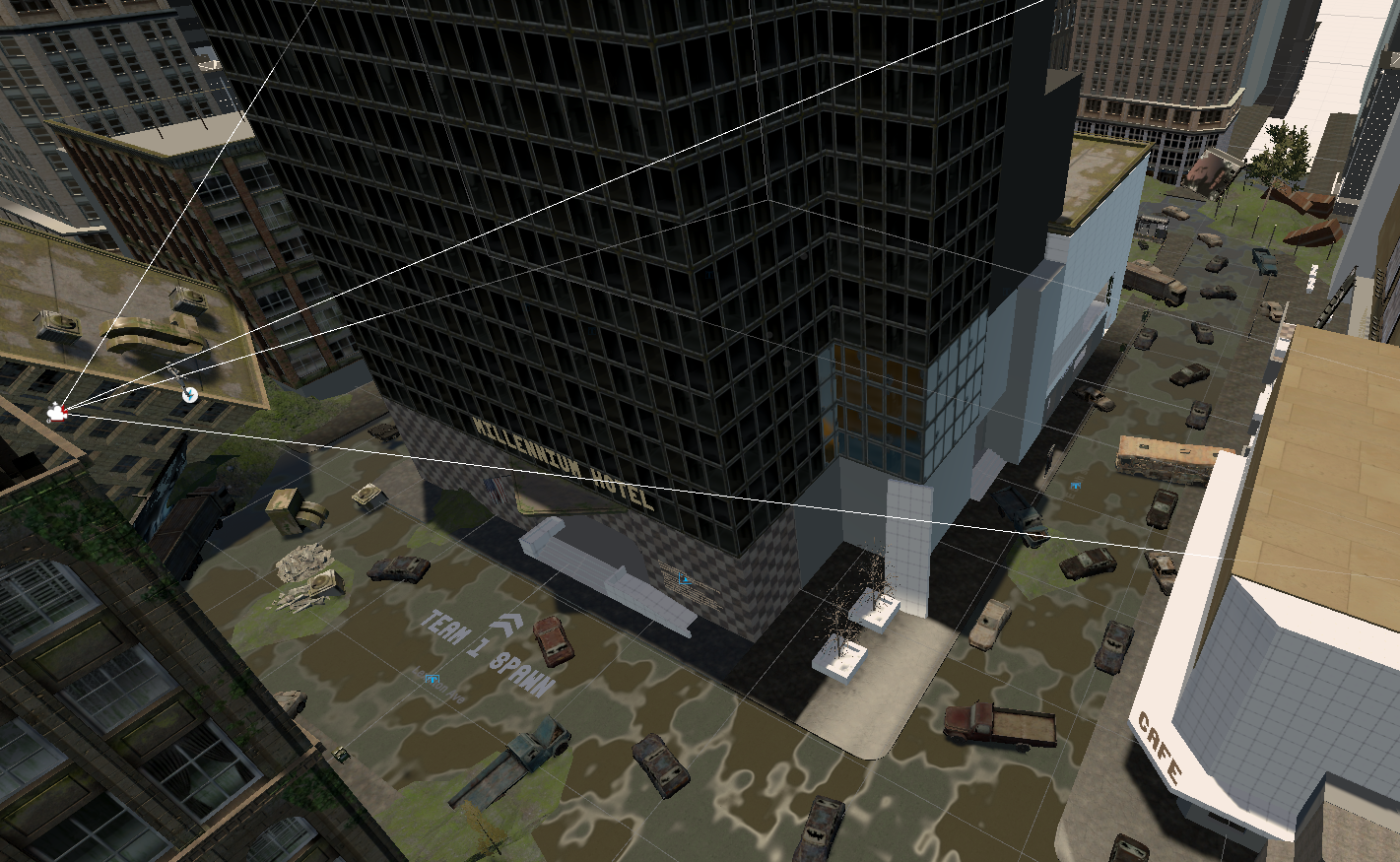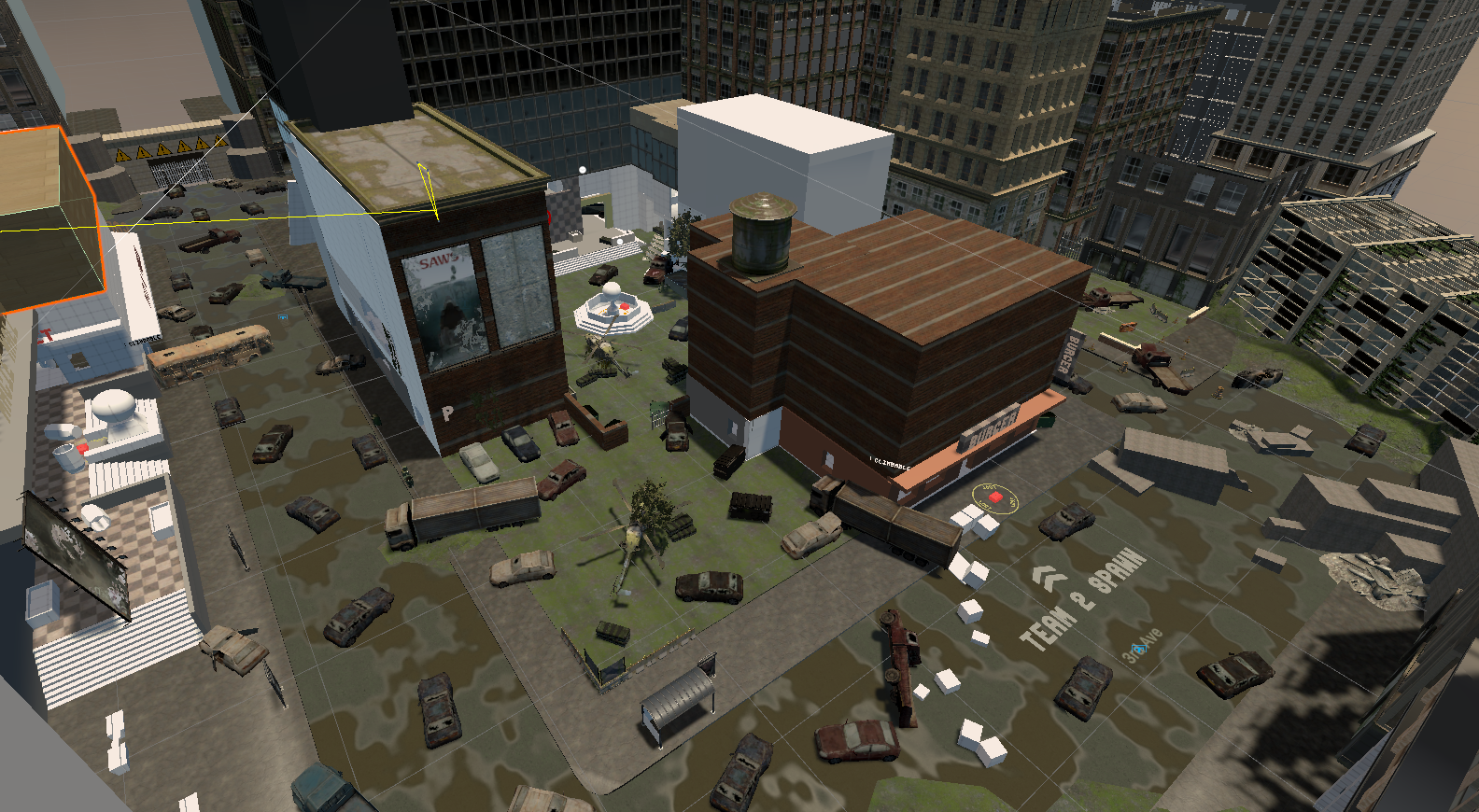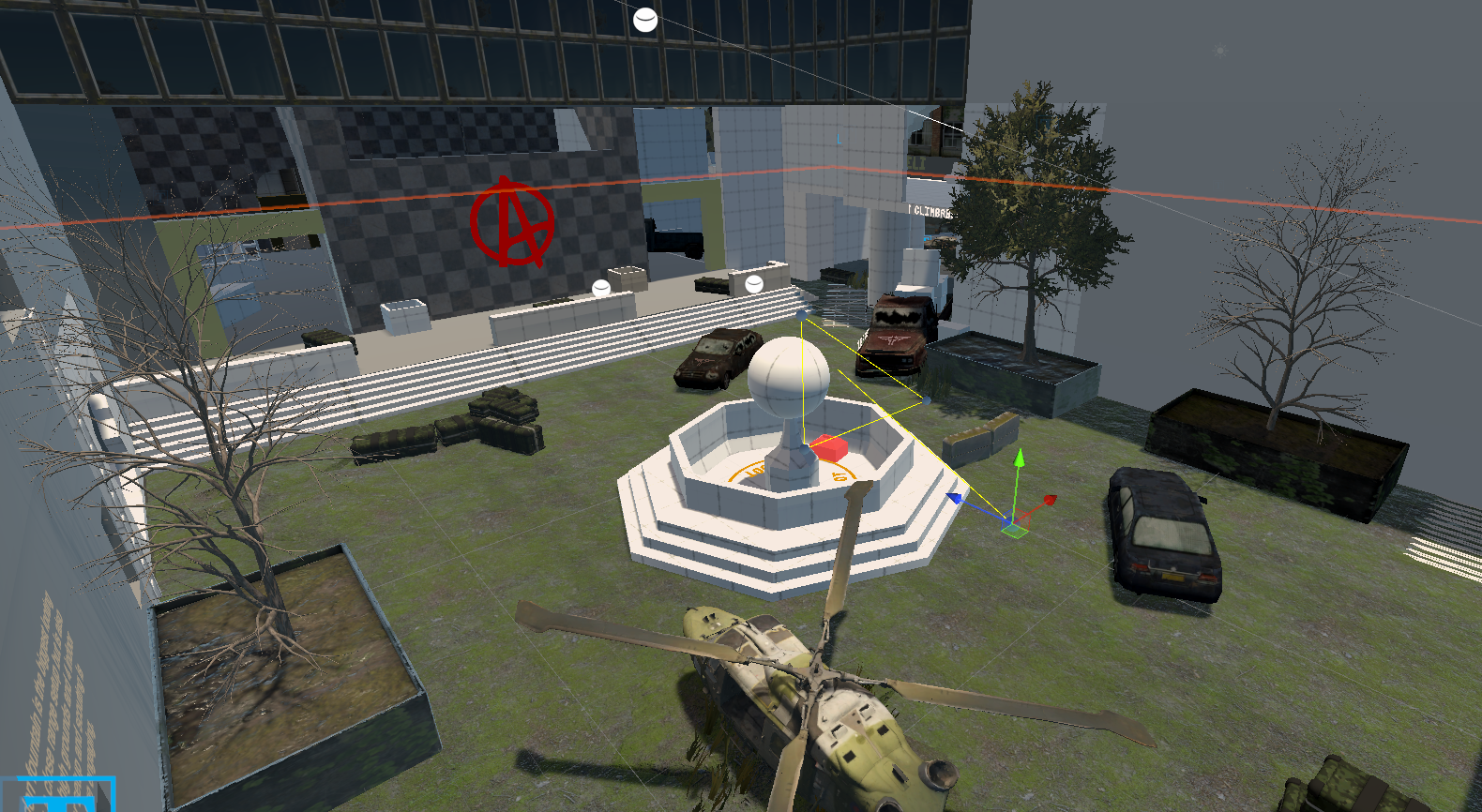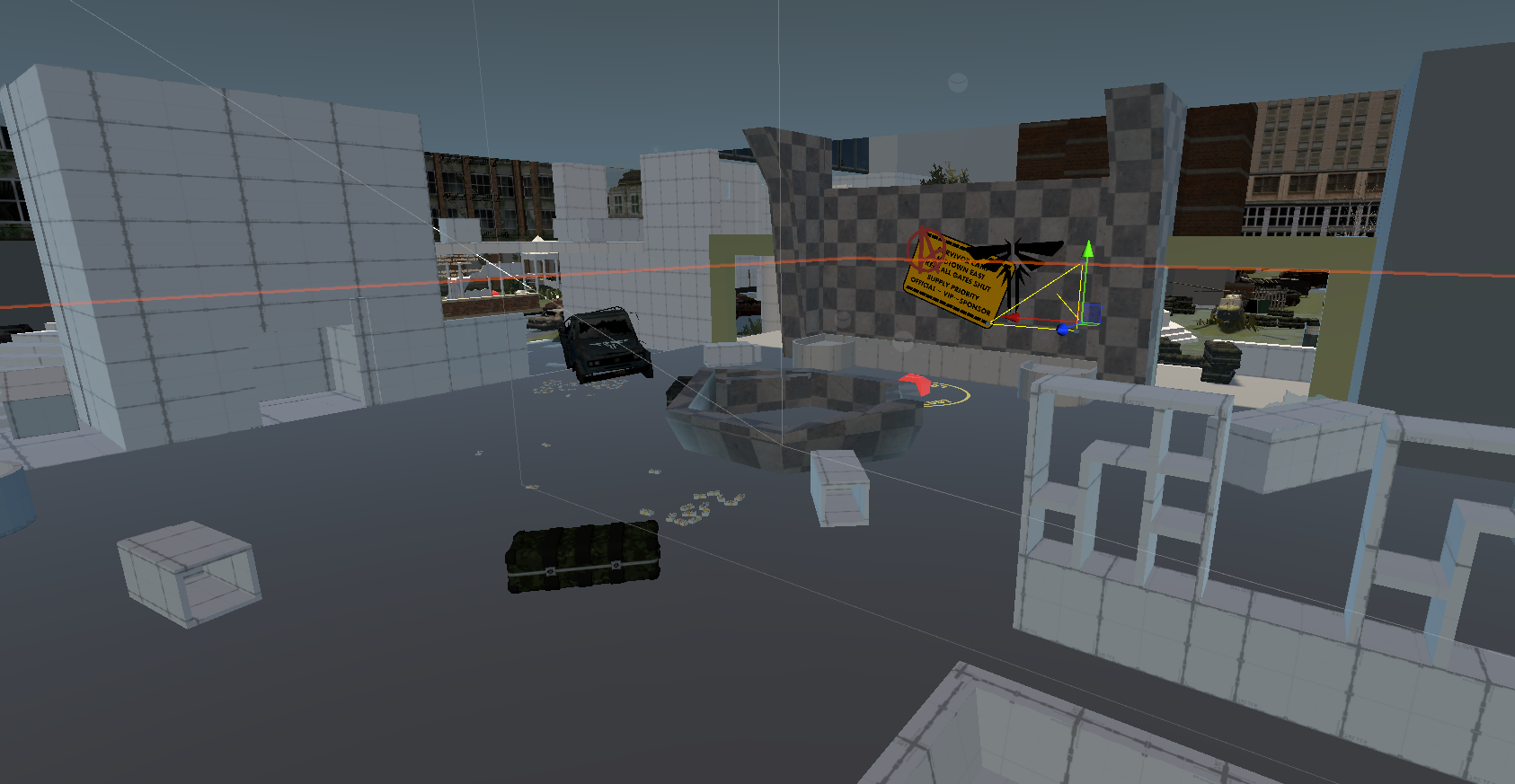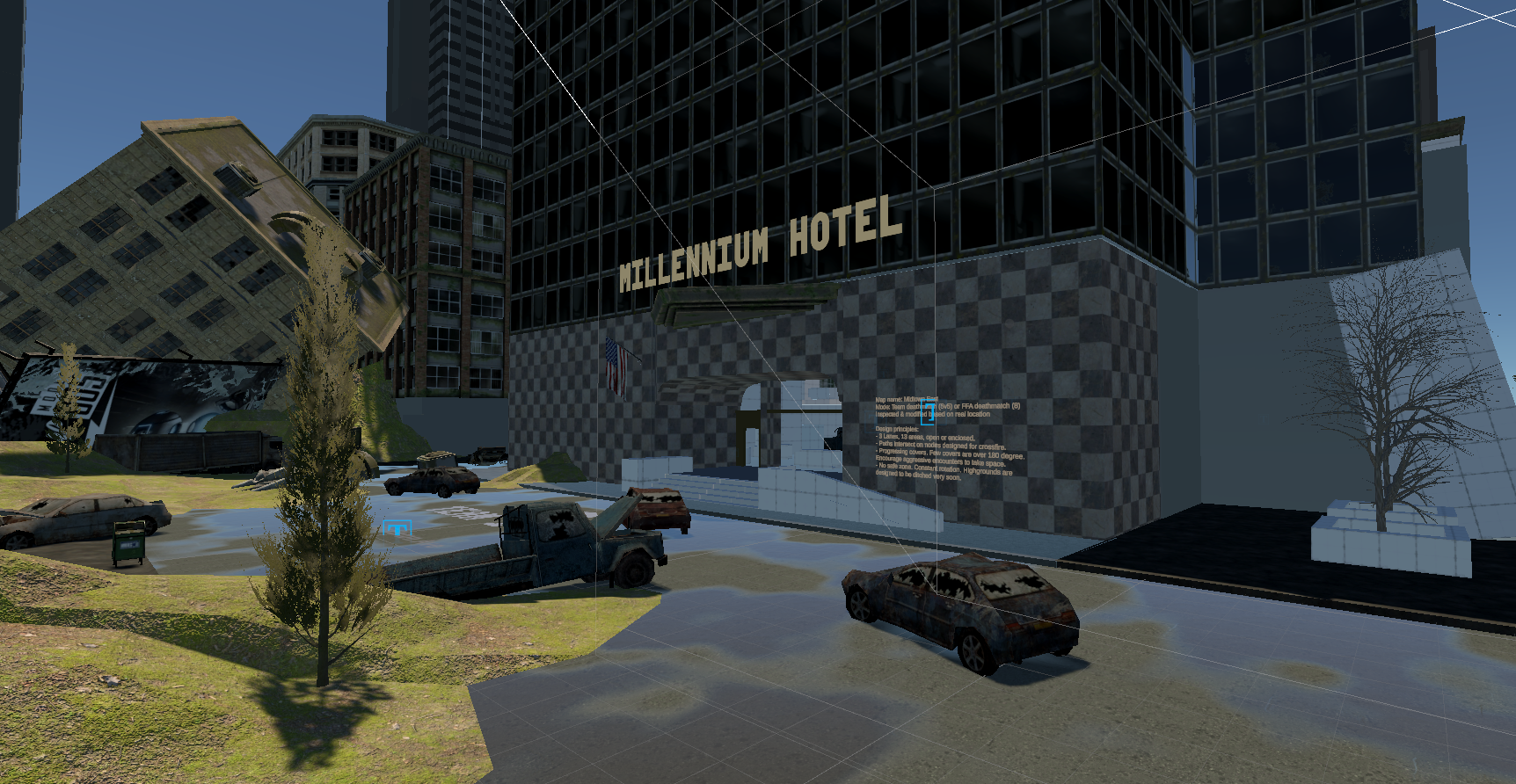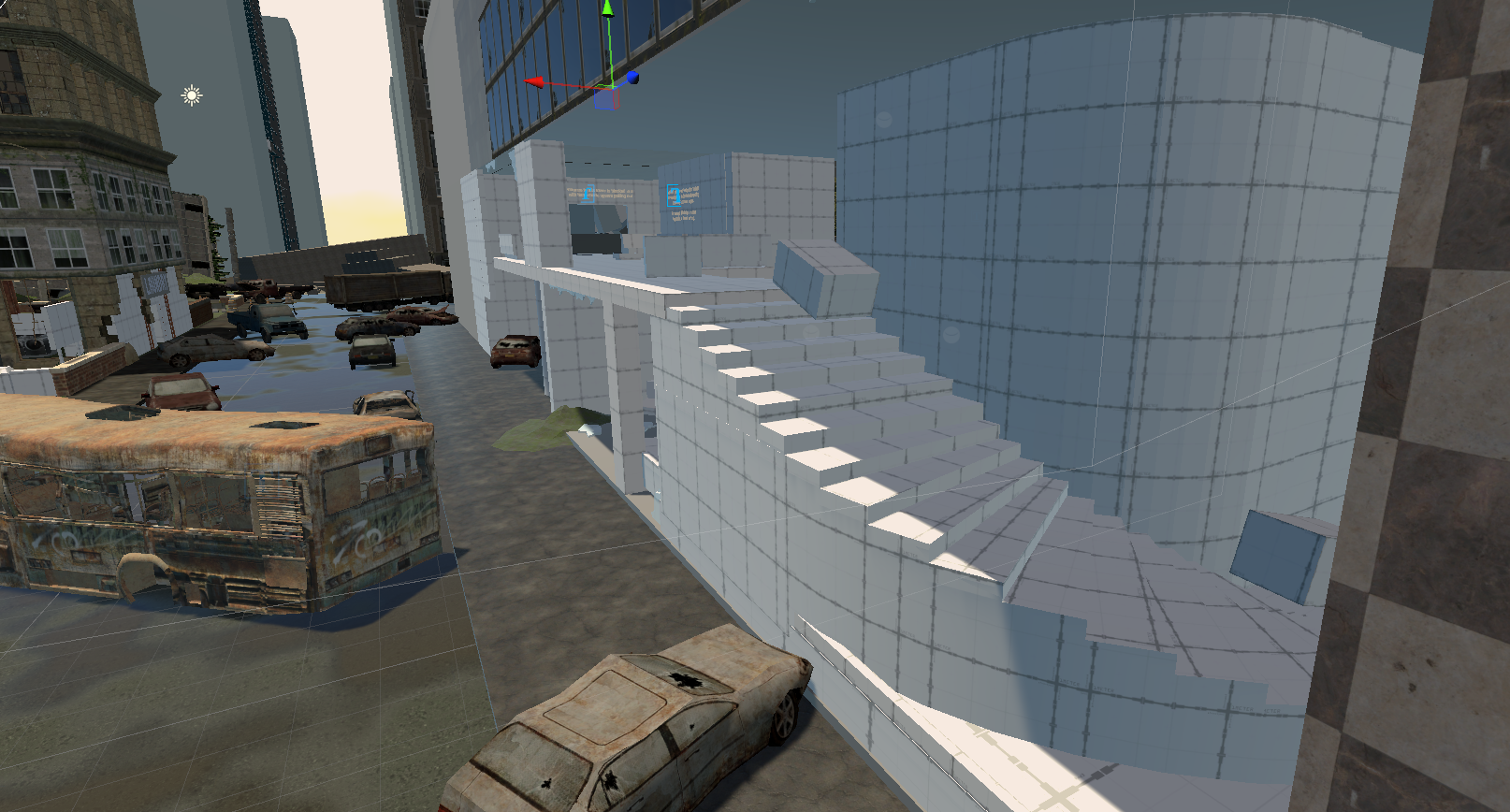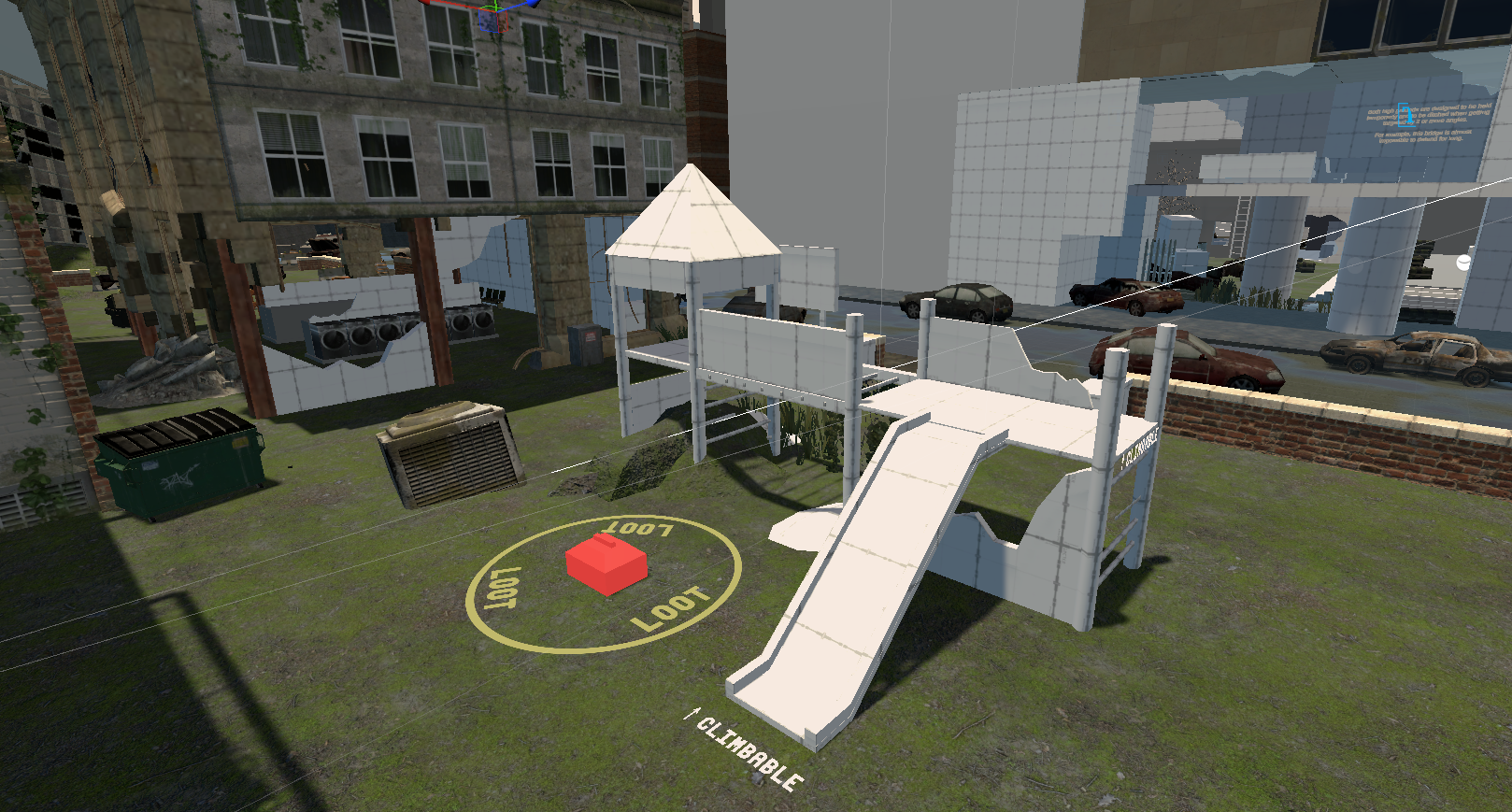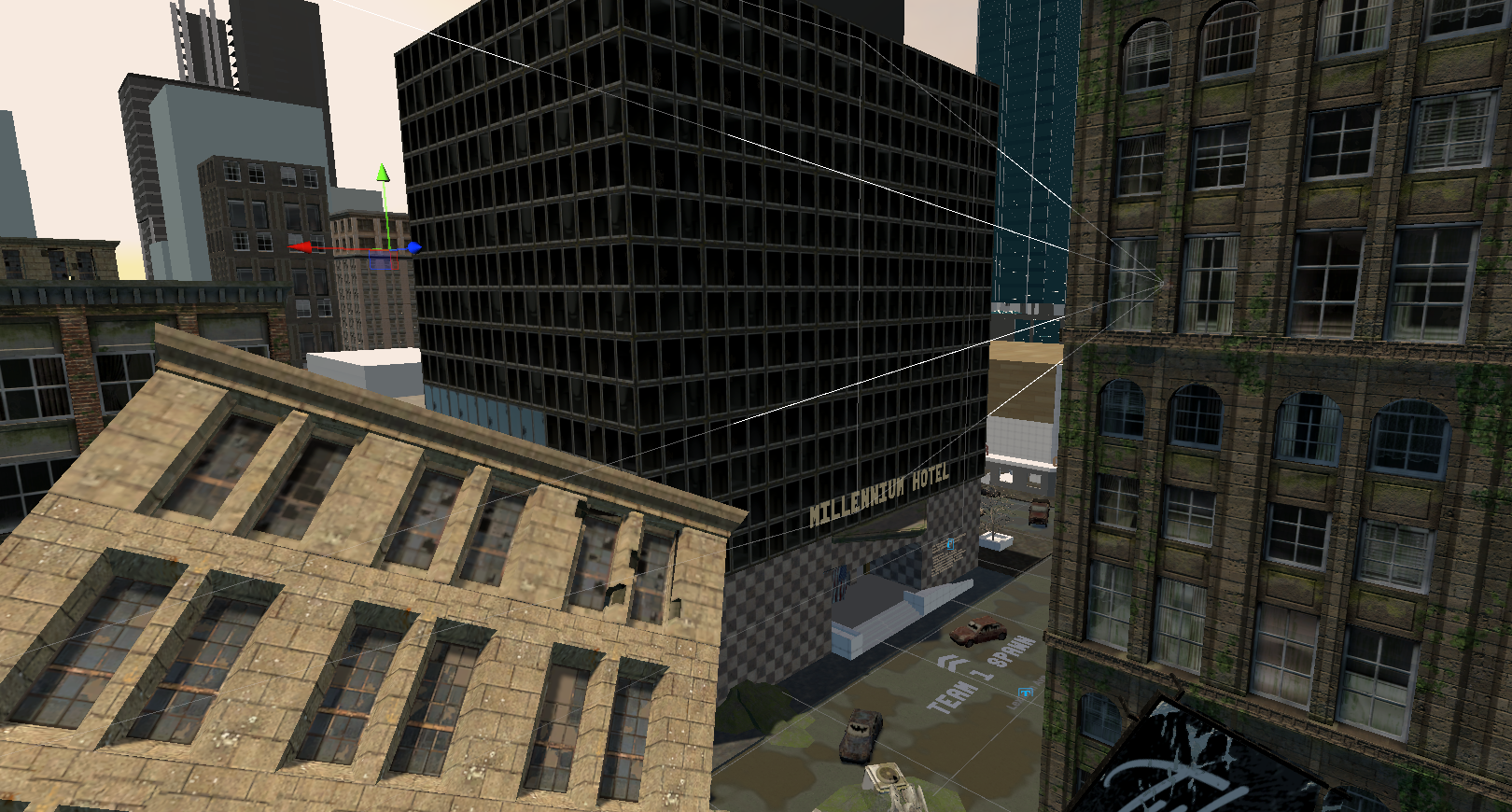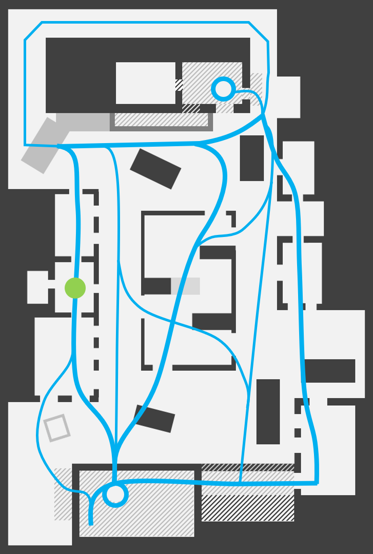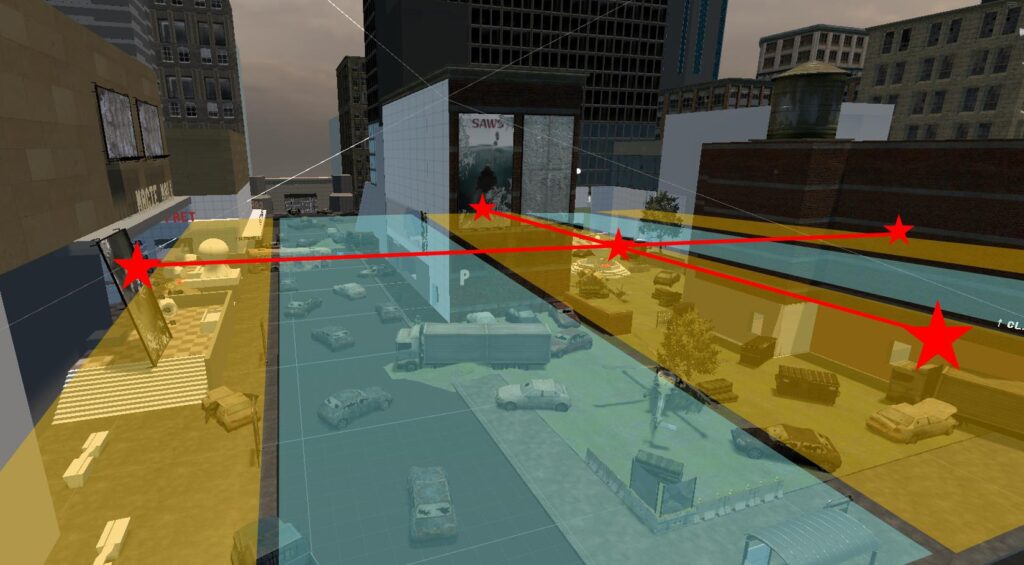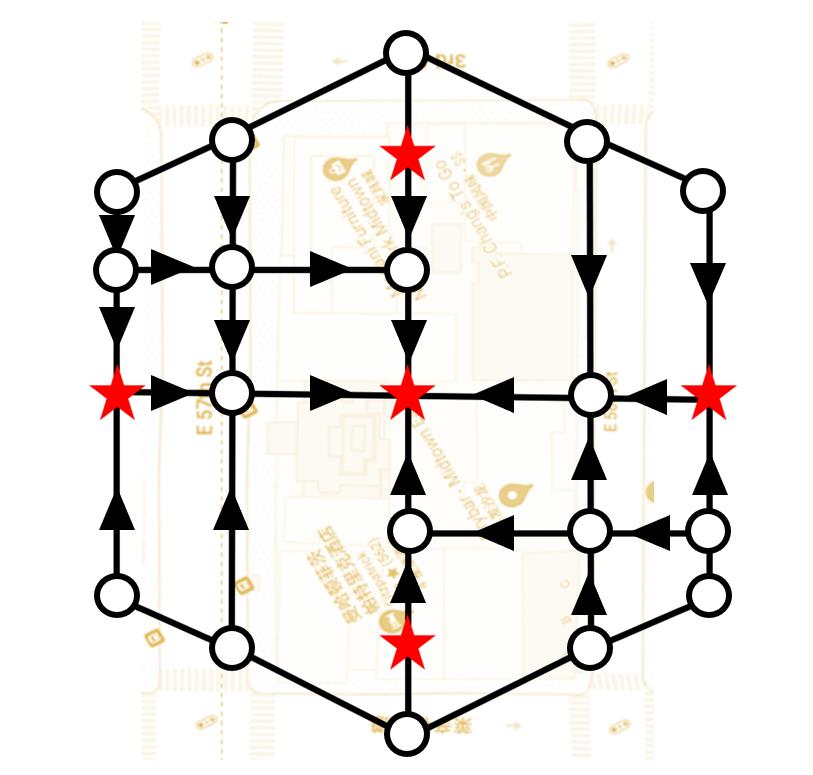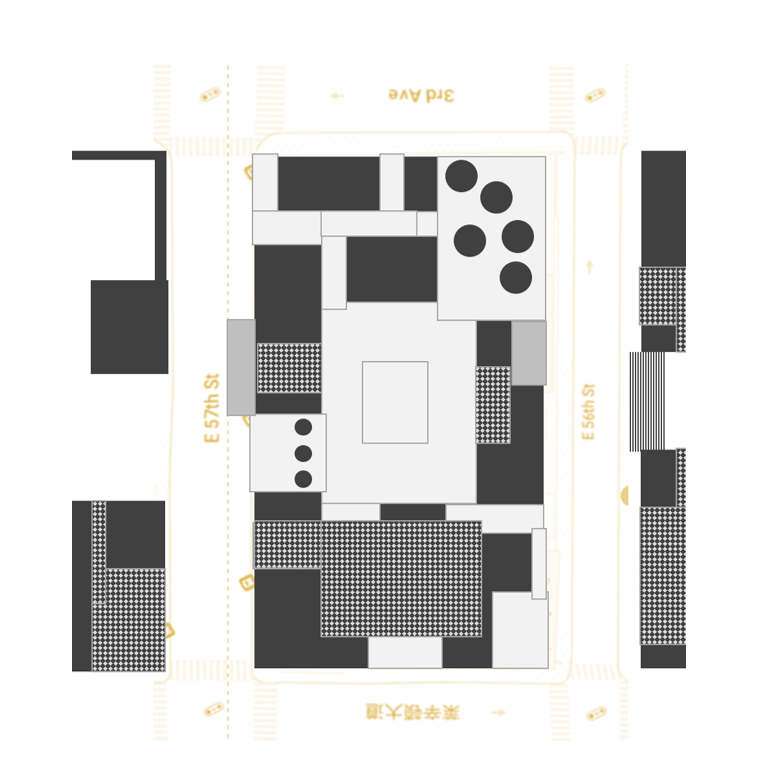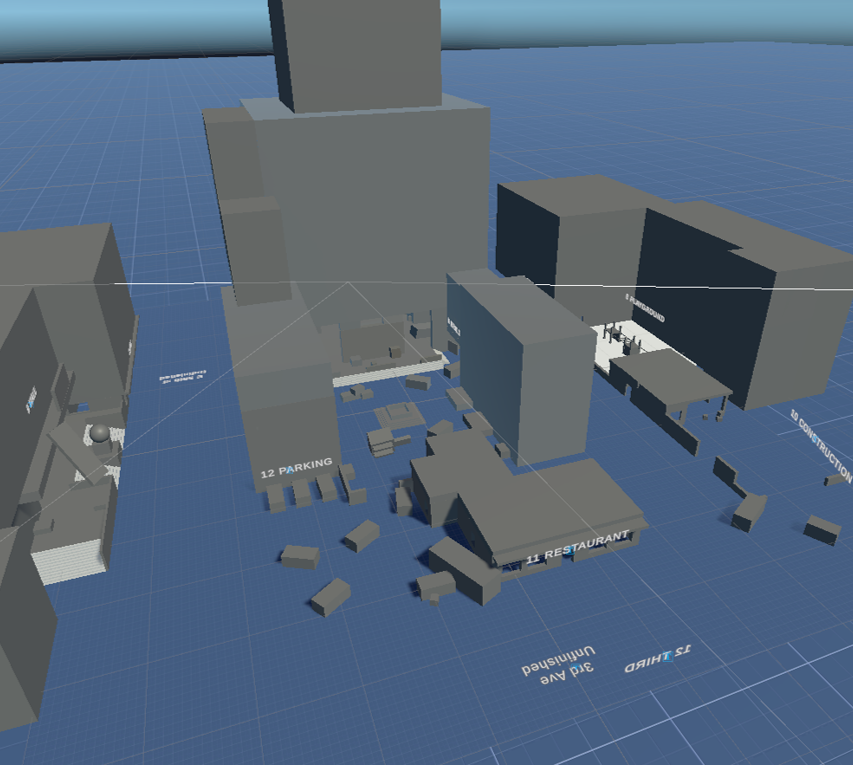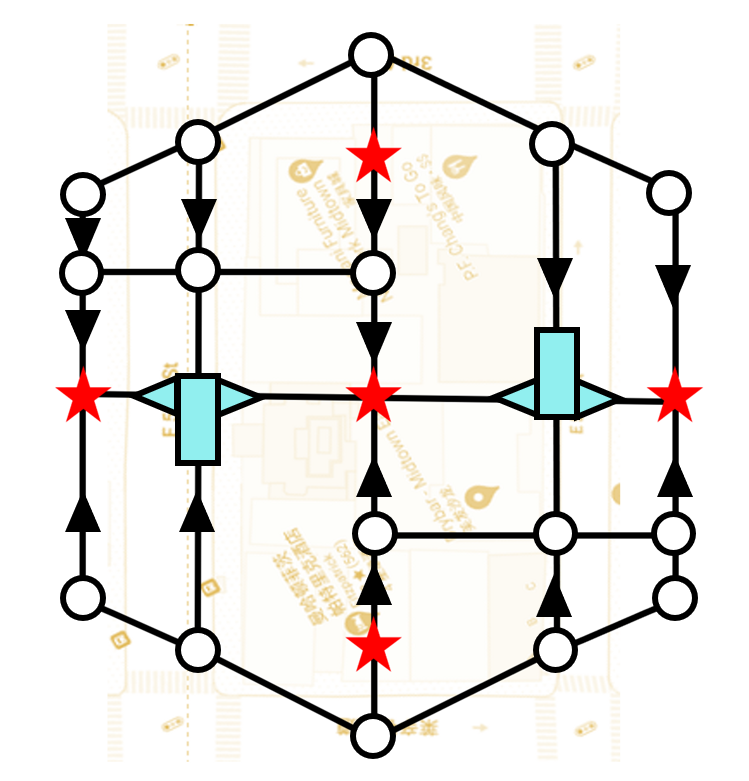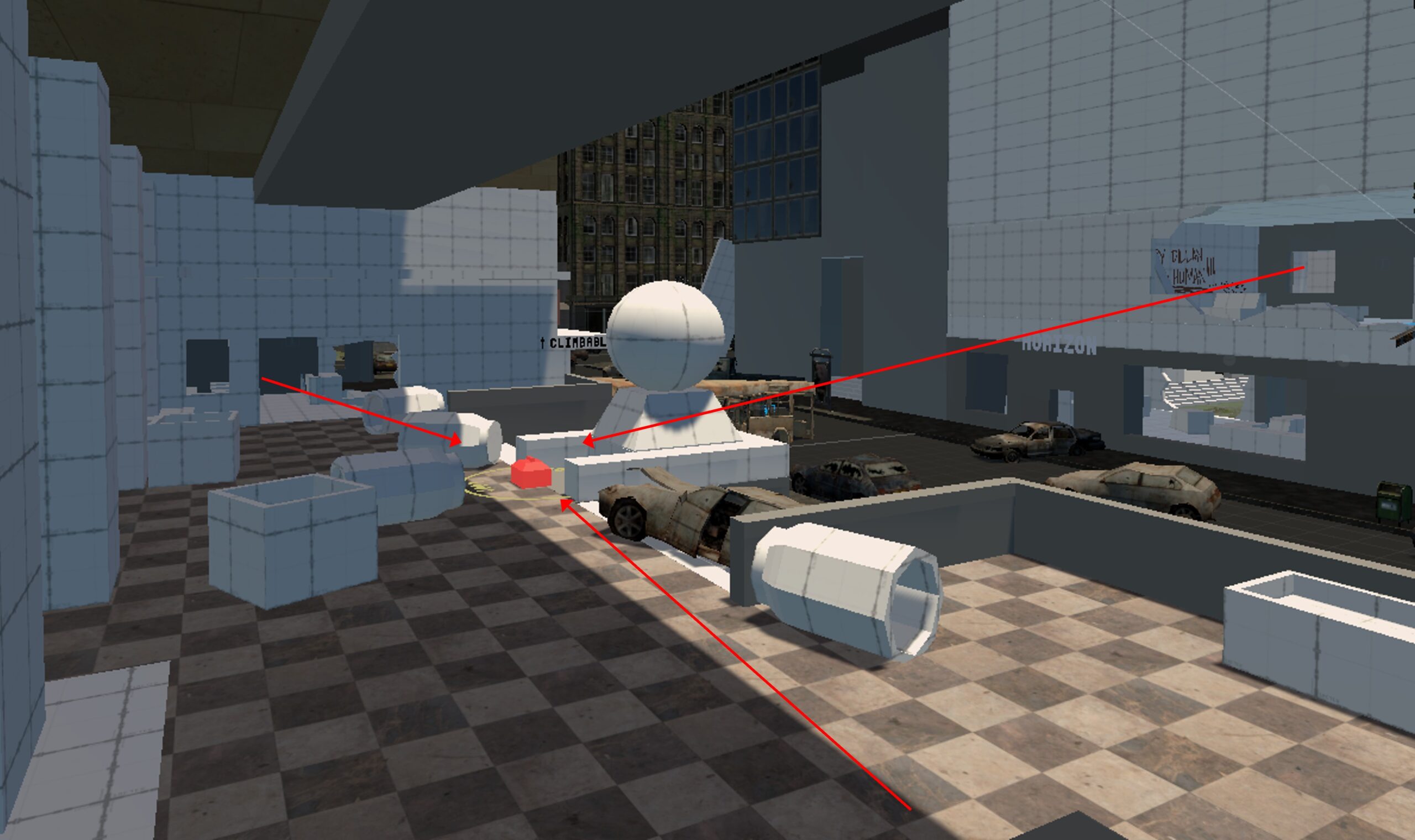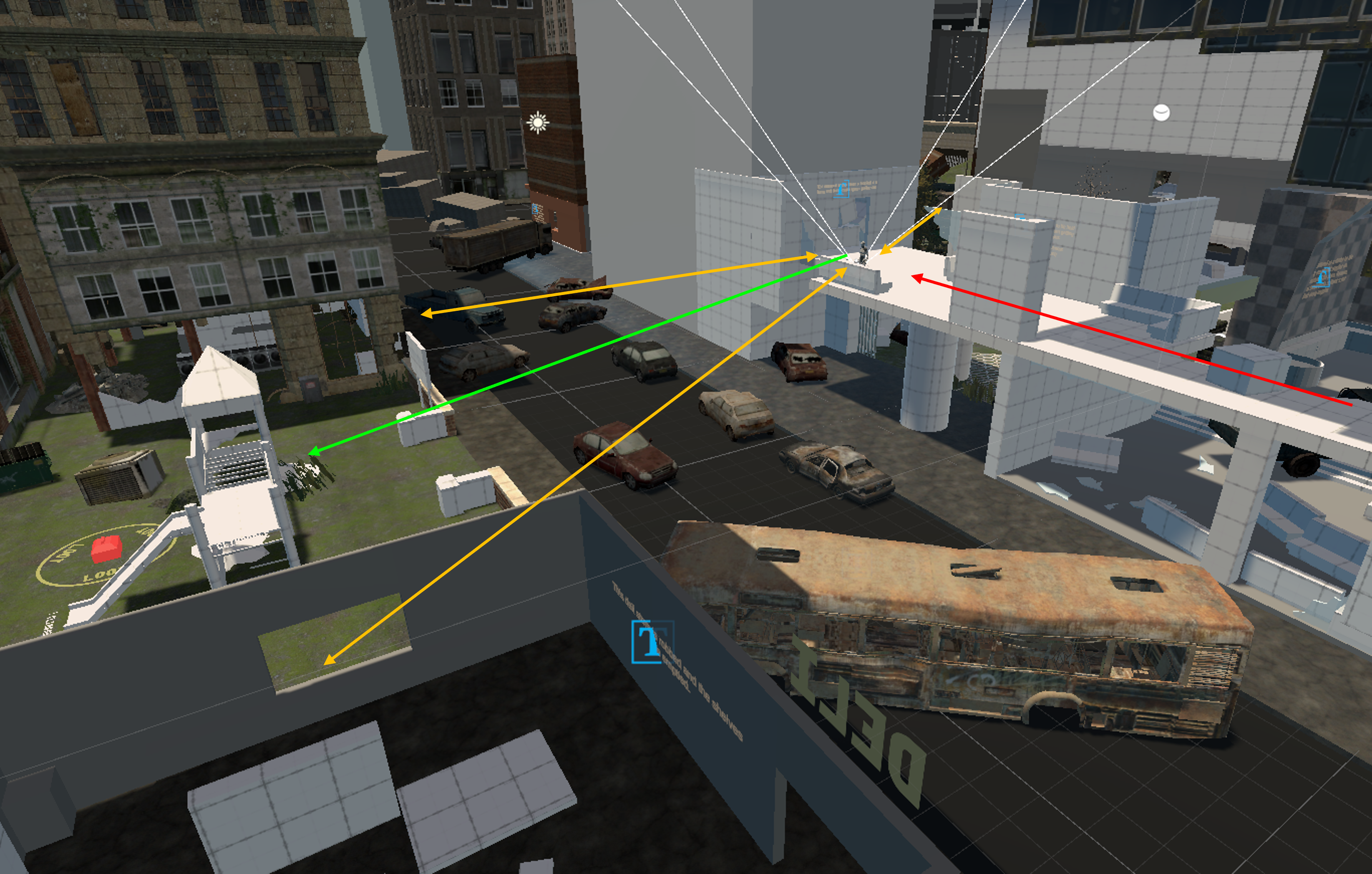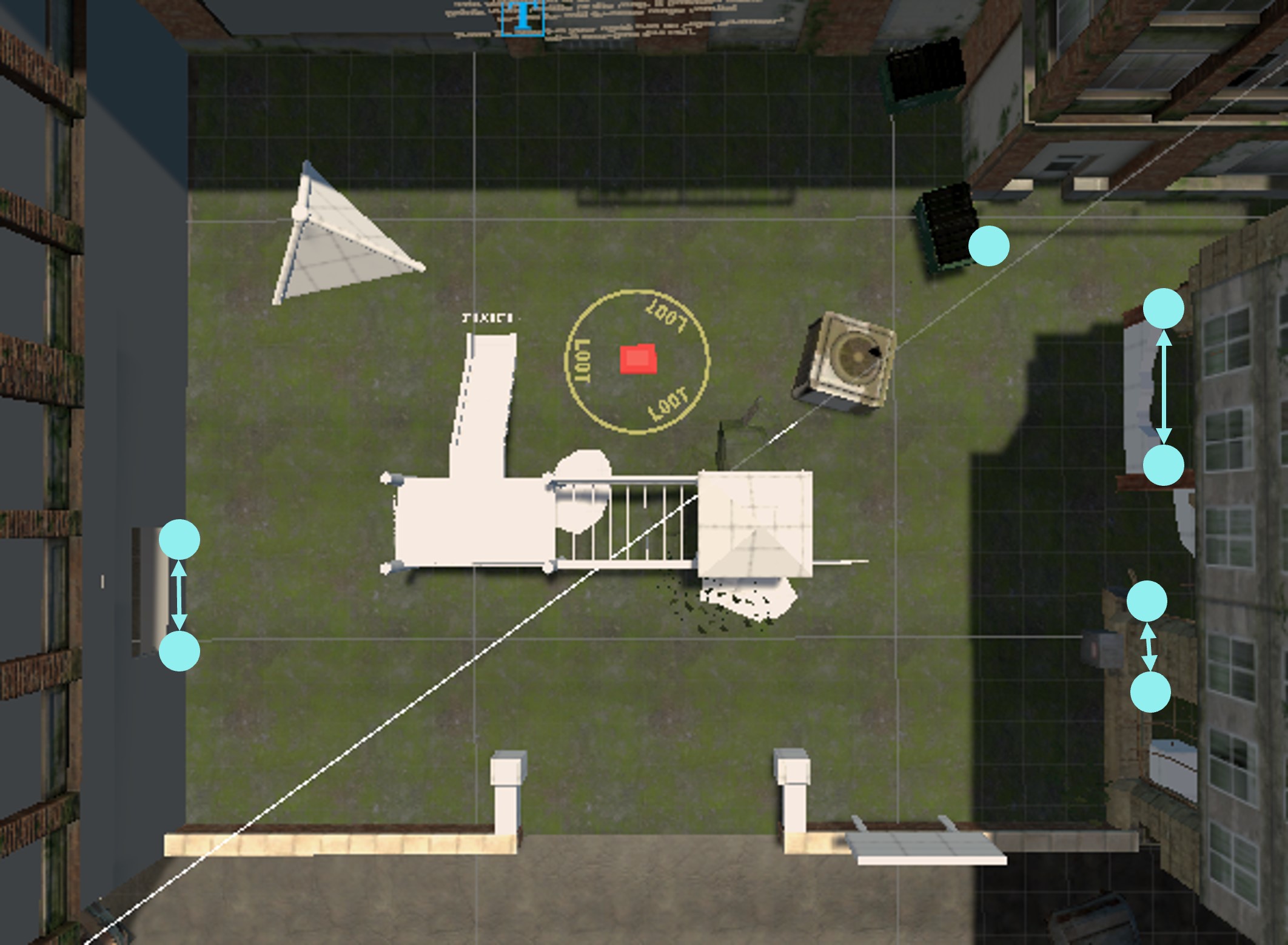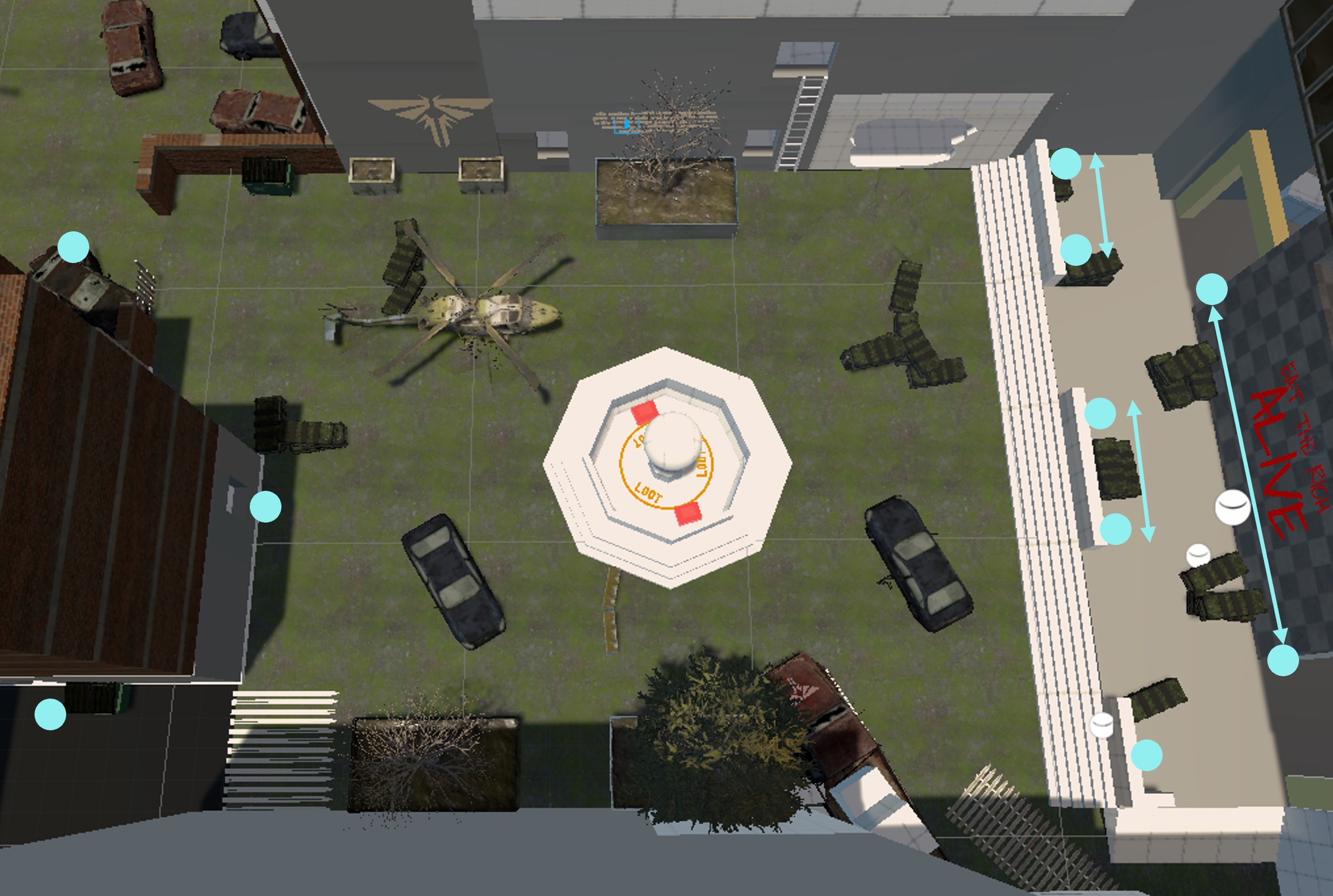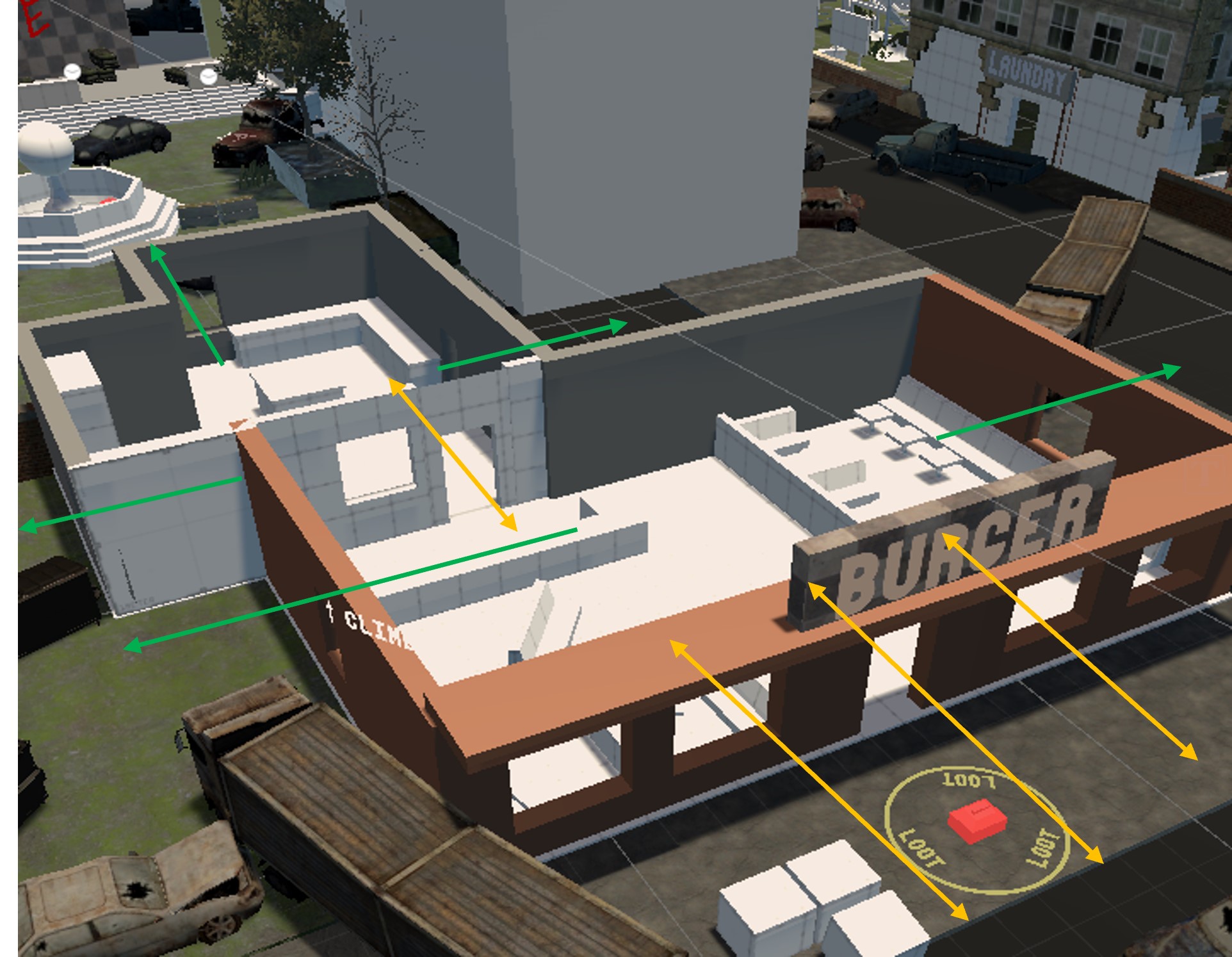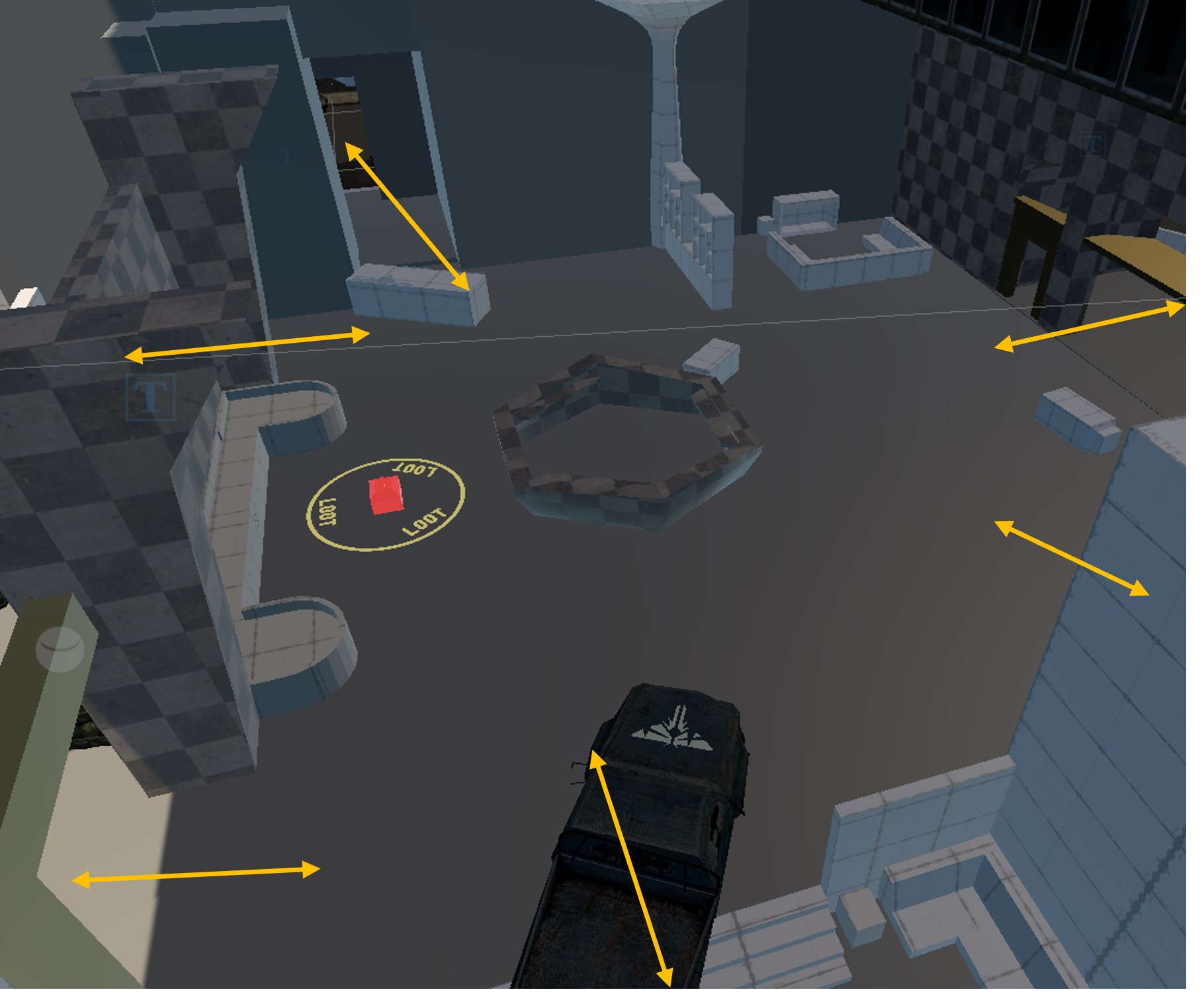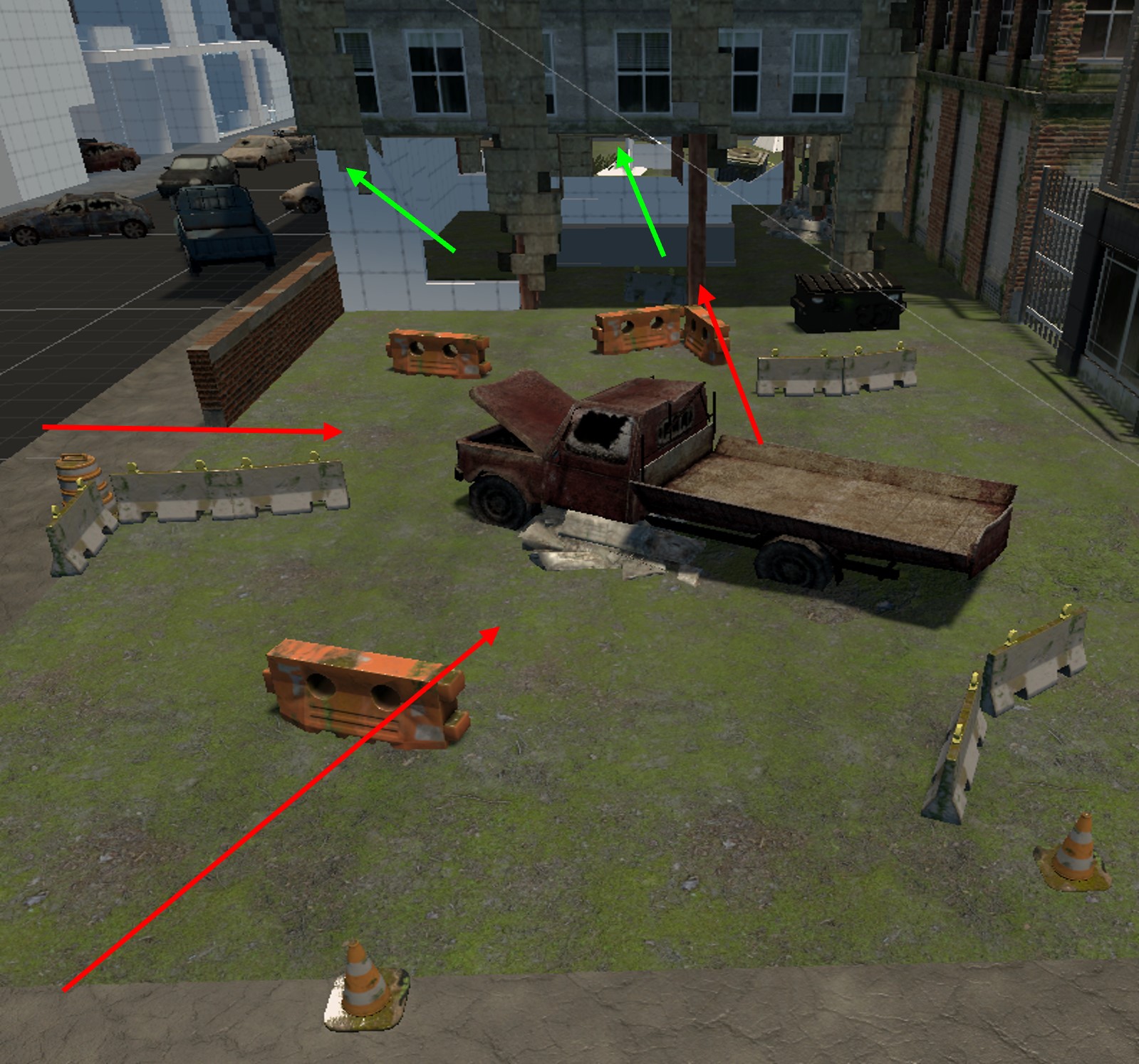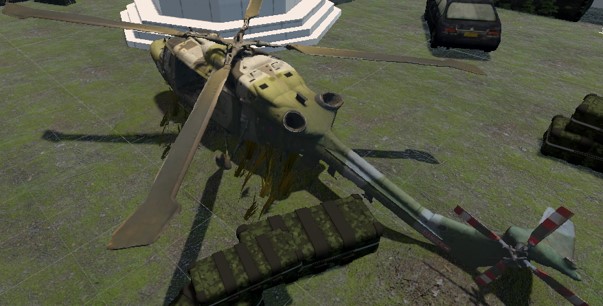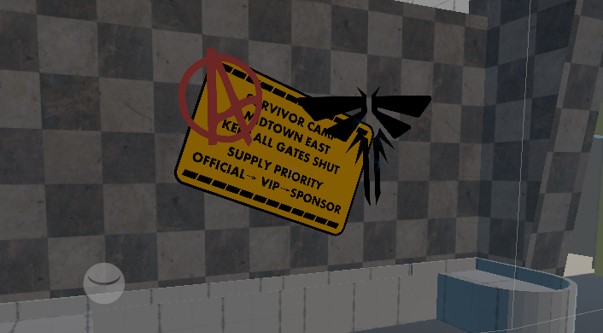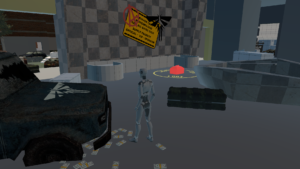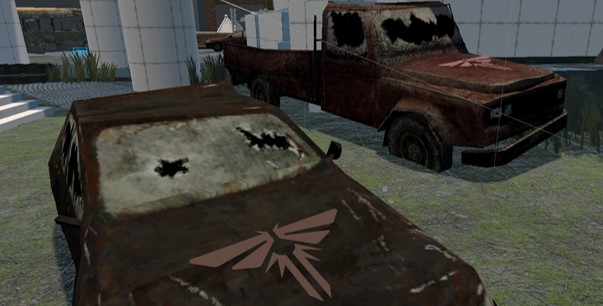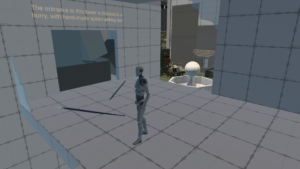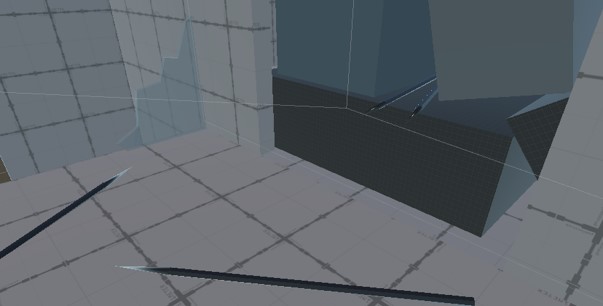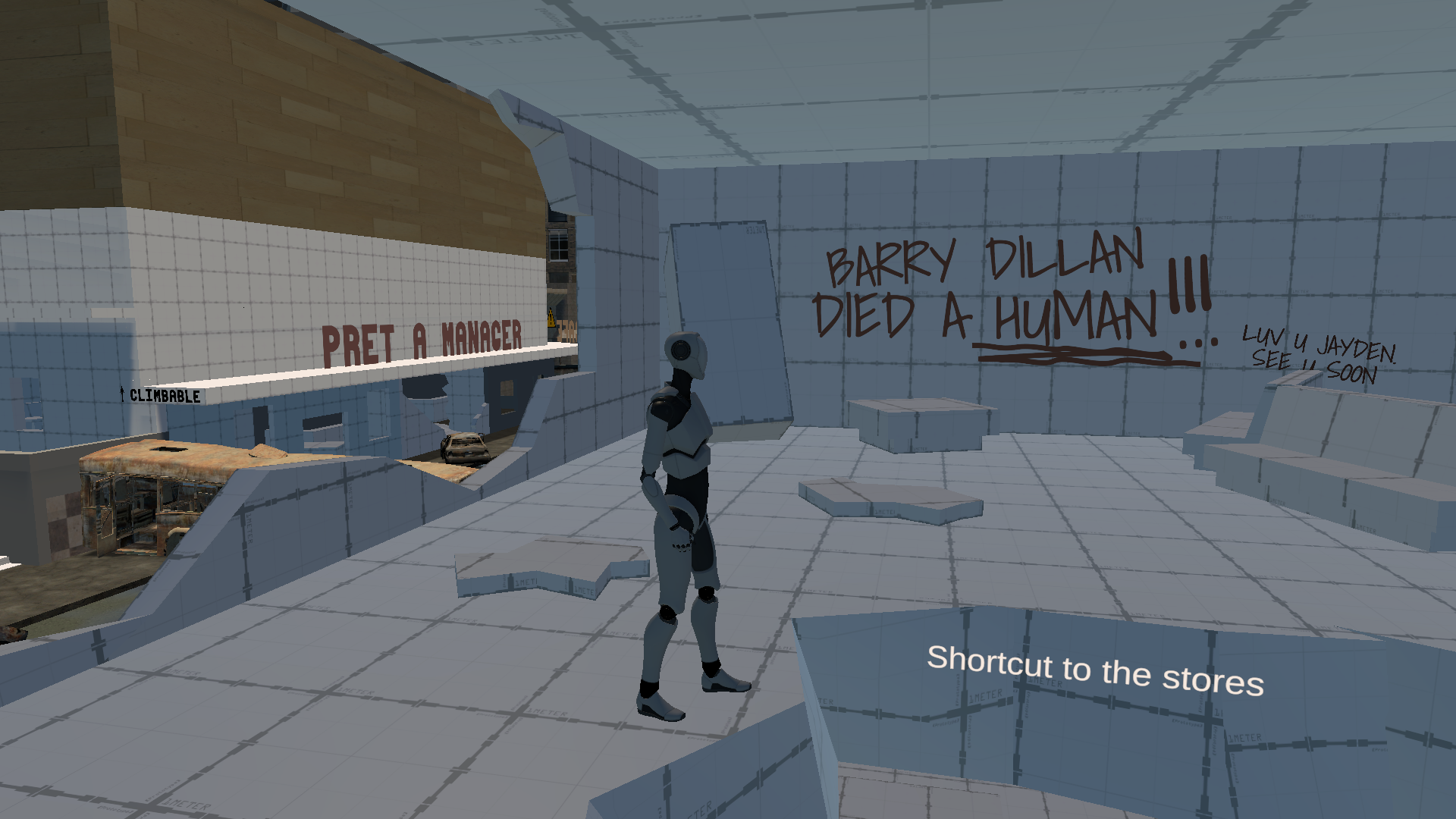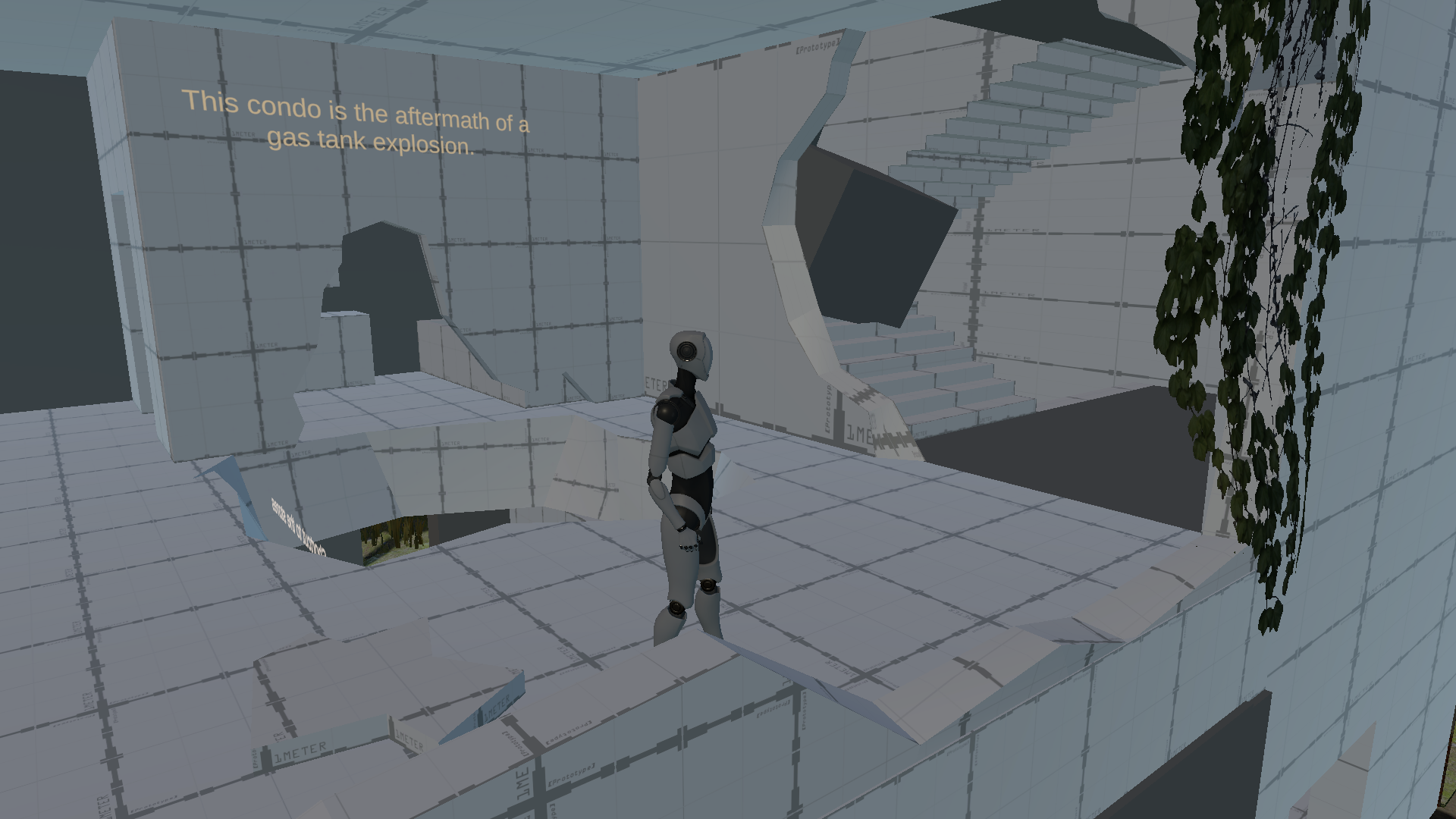The Last of Us Multiplayer Level Design:
Midtown East
Midtown East is a The Last of Us 2 Multiplayer map designed for both Team Deathmatch (classic 4v4, 5v5) and FFA Deathmatch (8-12). It is inspired by real locations in midtown Manhattan.
Feb 2023
Unity 3D, PC
Role: Level Designer
This is an unofficial project made for other purposes.
Overview
The map contains 5 looting points, 7 indoor spaces as well as 12 short to mid range zones, 2 long range zones and 2 high grounds.
Unique mechanic: Helicopter. Aerial vehicles are still maintained in the NYC military base. Every 4 minutes, a helicopter flies across the map, reducing movement sounds and “listening” ability effective range by 80% for 20 seconds. This encourages the player to actively rotate and approach camping enemies.
Worldbuilding Research
This map sampled from a real location: Lexington Avenue & 57 st Manhattan.
– 4-Star hotel
– Old and worn-out apartments
– Cheap restaurants and parking lot
– Collision of luxury and declines
NYC is a city that never gets depicted in The Last of Us. This level was designed under the world setting that NYC, while mostly destroyed, has established active military base and bunkers 25 years after the virus outbreak.
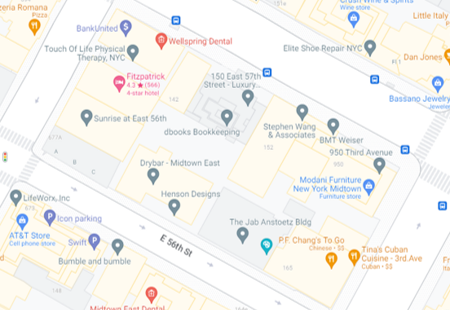
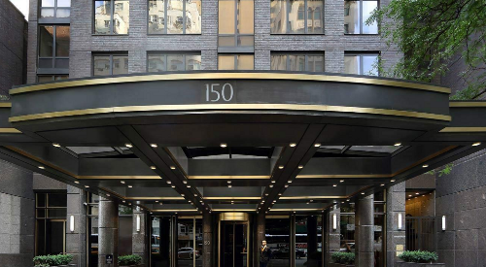
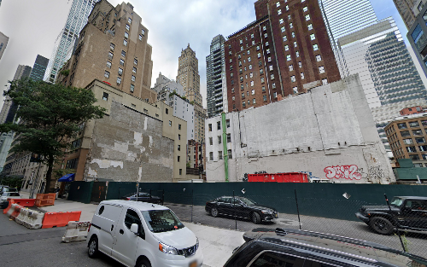
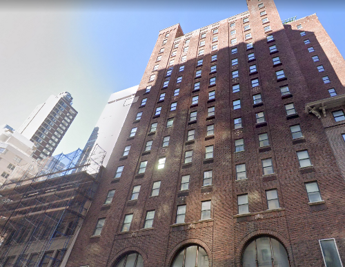
Level Design Research
Interviewing the Playerbase
Decade-old factions players in a TLOU discord server voted “Checkpoint” and “The Dam” their favorite and second favorite maps.
- Checkpoint: Highly symmetrical three-lane design, close-range combat with plenty of covers, encouraging aggressive strategies. However, the strategies are sometimes too simple: Shotguns, molly, fighting over the sides.
- The Dam: Perfect execution of verticality, balanced between close and long-range combat, enabling a variety of strategies. However, the fog near the endgame can make everyone extra passive.
Studying "Checkpoint" map: Why is it fun?
- Three-lane design with indoor spaces on both sides. High grounds on ends.
- Sides: Lots of full covers. defendable but hard to flee.
- Middle: Accessible with many retreat options, but easy to be flanked.
- Ends: Good for sniping, but very limited lines of sight. The hunters have better high ground covers and the fireflies have more horizontal depth.
Paths and Nodes
Midtown East, just like Checkpoint, took the classic 3-lane design and gave it a unique twist. From left to right:
- Lanes 1 and 5 consists of indoor spaces and well covered outdoor spaces. Lane 1 favors team 1 and lane 5 favors team 2.
- Lanes 2 and 4 are originally designed to be the streets. They are later strengthened with two high grounds since the first 3D blockout showed that capturing the streets doesn’t bring a player any advantage.
- Lane 3 goes through 3 out of 5 loot points and is designed to loosely gather the players around it. Both teams have a defendable space on their ends, which leads to either a high ground or the central area.
Final Placements of Nodes, Paths and Areas
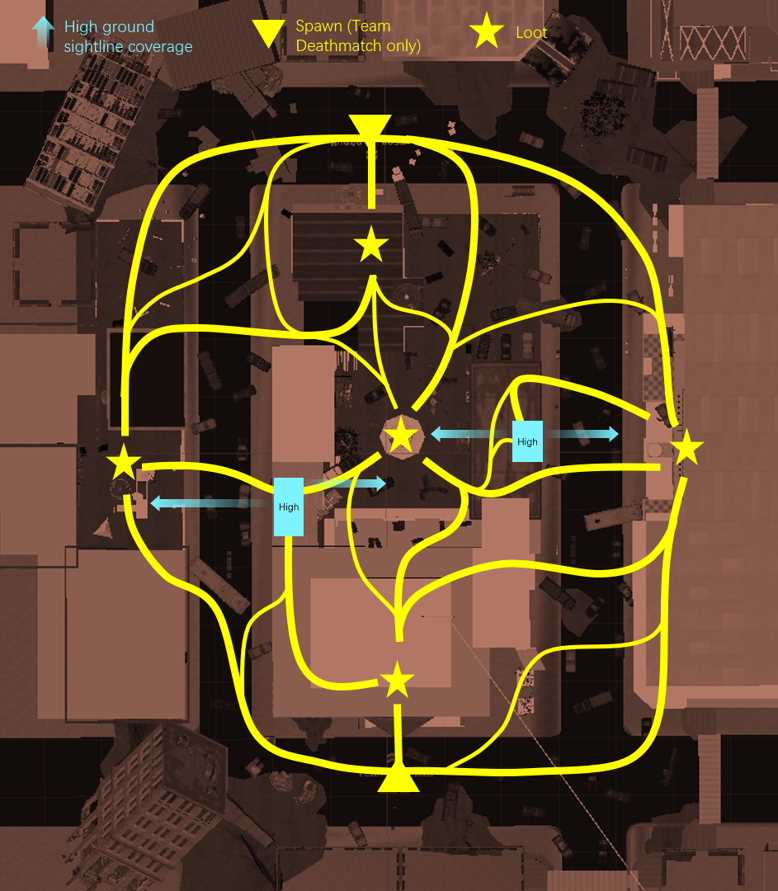
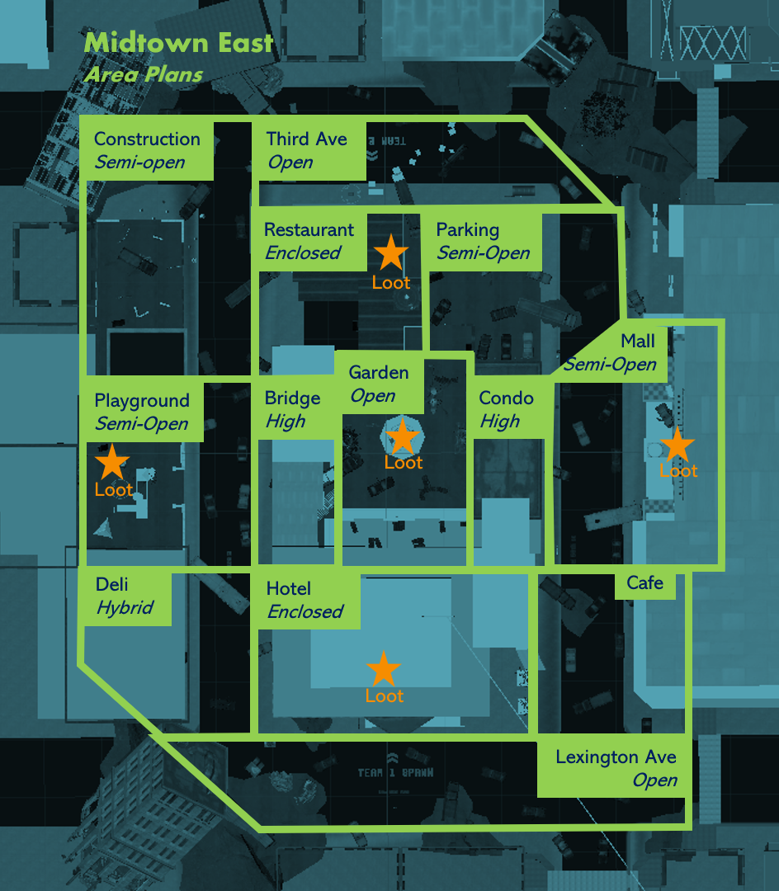
Points of Interest
Looting points
Similar to TLOU Factions 1, this Factions 2 map contains a total of 5 looting points that provides essential crafting materials. The two loots near spawns are in safer indoor areas, while the other three are located in behind 90-180 degree half covers. Those three are designed to be collected after you eliminated all threats around, and are almost impossible to defend. To sum up:
- The 2 loots near spawns (hotel, restaurant): indoor, safe, >3 escapes
- The 2 loots on both sides (mall, playground): half covers, surrounded by 3 angles, 1-2 escapes
- The loot in the middle (garden): double resource, full covers, surrounded by >4 angles, no escape
High Grounds
Considering TLOU is based on console and it’s harder to flick vertically on controller, an easy-to-camp high ground will break fairness significantly, like in the map “Capitol”. Both high grounds in this map has very good sightlines, but can also be targeted from various angles. Hiding behind one cover exposes your back to the other side.
Both high grounds have two entrances and another way to jump off. Both have unsafe half covers on their outer sides and restrictive full covers on their inner sides. With that being said, they are still valuable spots for 1-2 people and can be defended to an extent.
Intersectional Relationship
Windows vs. Pillars (Peeking Points)
A lot of the encounter areas in Midtown East is asymmetrical, with one side being a solid wall with one window, and the other side providing loosely distributed pillars. The window wall is safe but predictable and restrictive, while the pillars create more peeking spot at the cost of more exposure. Overall, the safer side (window wall) is at disadvantage. Example:
Around playground, the deli shop (left, team 1 side) is more passive and usually the laundry shop (right, team 2 side) will make the first move towards the covers around the loot.
In garden, the hotel terrace (right, team 1 side) has multiple half covers that suppresses the restaurant (left, team 2 side) from progressing into the garden, at the cost of being exposed to the condo above (team 2 side).
Slow vs. Fast spaces
Level Designers use the flow of space to shape player behavior, and the intuitive slow-to-fast change of pace between areas in Midtown East is a great example.
- Restaurant is the relatively slowest space, with 2 rooms each of 3 exits and with many covers. Players in a slow space takes longer to rotate but are safer with more options.
- The hotel lobby is a medium speed space. It has several covers but is too vast to defend for long.
- The construction site and laundry shop is a fast speed space. The players inside is vulnerable from one or more directions and is forced to keep moving towards the objective.
Environmental Storytelling
Barry Dillan Died a Human
The second floor of the condo building was deconstructed by an explosion, with lines on the wall that reads “Barry Dillan died a human” and “Luv u Jayden see u soon”. It can be assumed that a person named Barry Dillan wrote these as their last words before committing suicide though destructive means.
Full Walkthrough
Credits
Congzhou (Nicky) Du
Level Designer, Environment Designer
Sketchfab
All assets downloaded from this platform belong in the public domain.
